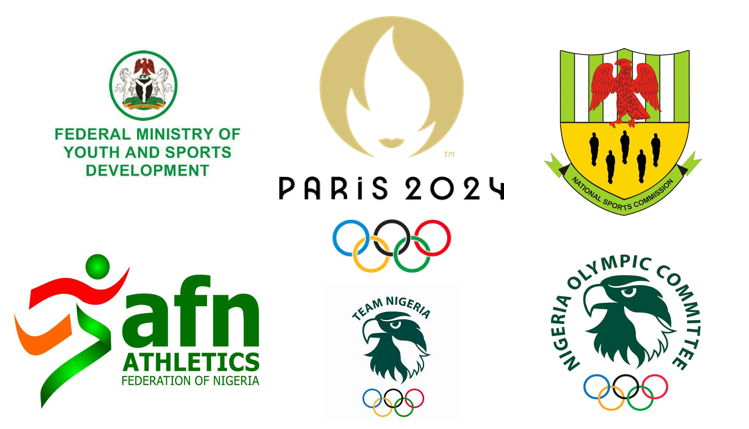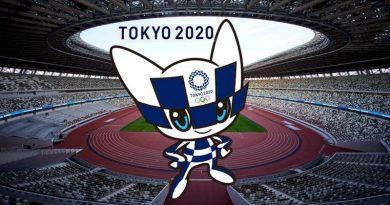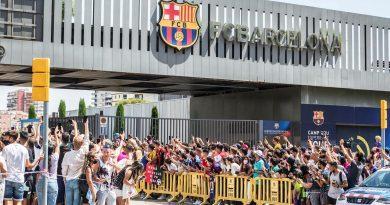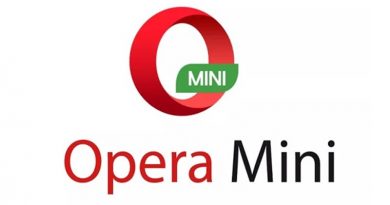Nigeria’s Olympics Performance: What Went Wrong in Paris Olympics 2024
While watching the closing ceremony of the Paris Olympics 2024 tonight, one could not but feel somewhat disappointed by Nigeria Olympics 2024 performance. The nation’s athletes, once sources of pride at the global stage, turned in a string of lackluster performances that failed to inspire hope for their doing much better in this year’s games. With zero medal count and a plethora of missed opportunities, the showing that Nigeria had turned in was nothing short of dismal.
Nigeria Olympics 2024 was a total disappointment as the country went from bad to the very worst. With a contingent of 85 Athletes, the country could not even win a single medal, not even a rustic one, no matter how bad. The team will be coming back home completely empty handed. The Paris Olympics 2024 is thus Nigeria’s worst Olympics outing since the 2016 Olympic games. The country won medals in the 2016 and 2020 games but now in 2024, it is ZERO medals.
The report has therefore looked into those factors, from the systemic issues in the development of athletes to the very last minute, that mitigated against the country’s poor outings. Understanding what had gone wrong will give you insight into the challenges facing Nigerian sports and the potential paths forward to Olympic success in the future.
The Build-up to Paris Olympics 2024: High Hopes Turned to Disappointment
Promising Start
With the Paris Olympics 2024 coming, hopes among the athletic community in Nigeria have never been higher. From the rich history of sporting success to the varying performances at international events lately, everything had combined to fill the Nigerian team with optimism. The track stars were elements tipped to get medals, while qualification by the basketball team was expected to bring the nation its first-ever podium finishes in that event. The Nigerian Olympic Committee was projecting a haul of medals never seen before, thereby setting expectations high among the team.

Paris Olympics 2024 Preparation Challenges
Despite huge enthusiasm, there were signs of cracks in the Olympic preparations of Nigeria. Funds came very slowly to most of the sports federations, with no good training, let alone international exposure, harnessed in the preparation of the athletes. Residual effects of COVID-19 distorted any standard regime and qualification events. Many athletes had to adjust their regimens due to the COVID-19 crisis. Besides, administrative rows in some key sporting bodies caused distractions and raised doubts.
Paris Olympics 2024 Eleventh-Hour Setbacks
A spate of unexpected hurdles emerged for the Games to begin with. Key injuries to some sure medal-winning athletes attenuated prospects in track and field events. Poor performances in pre-Olympic basketball tournaments from a team considered an erstwhile dark horse bred doubts regarding their competitiveness.
Travel restrictions and visa glitches created headaches due to the continuous evolving health policies worldwide.
As the Olympics drew closer, the mood in the media became more intense and eventually placed much pressure on Nigerian athletes. Social media amplified support and criticism, thereby creating an atmosphere charged with opinions around team performance. Some athletes reported that the weight of such expectations set by the nation was overwhelming and may have potentially affected mental preparation for the high-stakes competition.
Unraveling in Paris
As the Games unfolded, Nigeria’s hopes for a triumphant Olympic campaign began to crumble. Early exits in some events where medals were expected sent shockwaves through the team. Performances well short of personal bests and qualifying marks supported the notion that disrupted preparation had taken its toll on athletes. And the basketball team continued to flop, failing to advance beyond the group stage. The goal kept slipping further out of reach until, finally, athletes, officials, and fans were left wrestling with the sober reality of a disappointing Olympic showing.
Why Nigeria Did So Poorly in Paris Olympics 2024
Among the many interwoven reasons behind the poor performance of Nigeria at the Paris Olympics 2024 were the most pertinent factors that could be adduced. These, therefore, need full understanding to get to the root of the country’s athletic failings and provide a pathway toward future success.
Inadequate Funding and Infrastructure
One of the key factors that contributed to Nigeria’s underwhelming Olympic performance was the chronic insufficiency of sports funding. This very lack of funds immediately translated to a lack of quality training infrastructure, equipment, and support services for the benefit of developing athletes in the country. Most Nigerian Olympians had to contend with very outdated infrastructure and limited access to state-of-the-art training methods, hence really placing them at a disadvantaged position compared to other international contenders.
In addition, the absence of any vigorous grassroots development program generally meant that such bright young talents went unnoticed or were not catered for. The country could not nurture a steady supply of elite athletes of such kind who could compete at the highest level because adequate investment in the sports structures, particularly at the level of the youth level of sports and the identification of talent, was lacking.
Nigeria Olympics 2024 – Poor Athlete Preparation and Support
The road to Paris Olympics 2024 success began well before the Games, and in several ways, preparation fell short by Nigeria. Many of its athletes were not regularly exposed to the highest level of international competition, a process indispensable for sharpening skills and developing confidence. Few training camps or preparatory tournaments meant most Nigerian Olympians were poorly equipped for their clashes against the world’s best.
The support system for the athletes was also below par. Poor medical care, inadequate nutrition advice, and lack of psychological support frustrated the ability of athletes to perform to their full potential. Because of the lack of a good athlete welfare program, most of the competitors were weighed down with financial and other personal issues that distracted them from their Olympic dreams.

Nigeria Olympics 2024 – Administrative Challenges and Mismanagement
During the Olympic Games, inefficiency and deficiencies in the Nigerian sports administration were at the forefront of the country’s Olympic disappointment. Quite often, bureaucratic red tape caused funds to be released far beyond the time they should have been, invariably affecting the ability of the nation’s athletes to prepare and, on occasion, even threatening to derail their competing in a qualifying event.
Moreover, the federations faced allegations of corruption and mismanagement, generally tainting the athletes’ and coaches’ trust in the system. Non transparency in selection to national teams and resource allocation created an atmosphere riddled with uncertainty and less motivation, hence affecting team cohesion and individual performance.
Narrow Attention to Non-Core Sports
Traditionally, the Nigerian Olympic strategy has always been focused on some few sports, notably track and field events. This has brought in some past successes but at the same time robbed the country of other opportunities that existed in some disciplines. The failure to diversify and increase its investment in more Olympic sports left Nigeria with a thin base of medal prospects, thus shrinking the chances of overall success in Paris.
To upgrade Olympic performance, such key factors are to be dealt with. If the problems of funding, organizational efficiency, the support of athletes, and sports diversity are addressed, then a more robust competitive Olympic program can be built for the country in the future.
Events and athletes of Nigerian origin participating in Paris Olympics 2024
Nigeria Olympics 2024 – Track and Field Disappointments
Paris became a flop for the track and field team, one of Nigeria’s traditional Olympic pride areas. Sprinters did not make it past the preliminary heats in the marquee events like the 100 and 200-meter dashes. The women’s 4x100m relay did not make the final, having been medal hopefuls precompetition. These results were quite opposite to the nation’s historical dominance at the sport, leaving fans and analysts searching for answers.
Wrestling Woes
Nigeria’s wrestling, which had given so much hope in the past few years, was another flop. From an expectation of podium places in both freestyle men and women, the team could barely get past early rounds. Better and more experienced competitors failed to turn out due to injuries and visa-related problems, thus killing Nigeria’s aspirations in this area.
Nigeria Olympics 2024 – Basketball Breakthrough
One of the few bright spots was the men’s basketball team, otherwise known as D’Tigers, who created history by qualifying for the quarterfinals for the very first time. Their impressive group stage performance included a stunning upset over one of the European powerhouses, and that gave a hint about what Nigerian basketball could do. However, a narrow defeat in the quarterfinals ended their medal dreams prematurely.
Nigeria Olympics 2024 – Swimming and Gymnastics: Missed Opportunities
Participation in swimming and gymnastic events was restricted to a few athletes who made the qualifying times. These competitors did try hardly but none made the finals or placed high enough to medal in their respective events. It, therefore, became very evident that there was limited depth in these disciplines and that investment and development in sports such as these, that are considered to be non-traditional parts of Nigeria’s Olympic program, needs to be increased.
Boxing Below Expectations
The Nigerian boxers who did so well in the qualifying tournaments and numerous other international events could not make any meaningful impacts in Paris. Chances of podium finishes were killed with early-round exits in all men’s and women’s divisions. Team performance put questions on strategy for preparation and experience exposure abroad before major tournaments.
Ahead Lies the Future: Lessons Learned
The Olympic Games in Paris served as a wake-up call to the authorities in charge of Nigerian sports. While individual athletes went ahead to make a few sparkling performances, the result generally was below expectation. This performance clearly underlines the need for comprehensive and long-term athletes’ development programs, improved facilities for training, and strategic planning to ensure that Nigeria is competitive in more events during subsequent games.
How Nigerian Athletes Fared at Paris Olympics 2024
A Disappointing Showing
The 2024 Paralympics proved rather challenging for the Nigerian athletes, whose below-par performances disappointed all expectations built up in many events. In spite of jacked-up hopes and rigorous preparation, Team Nigeria could not make the kind of impact expected on the global stage, leaving fans and officials reaching for answers.
Setbacks on the Track and Field
What happened in Paris was a shocker to many familiar with the strong tradition of the Nigerian track and field team. In sprint events, once a Nigerian preserve, there were failures to advance beyond preliminary heats in some, while in the men’s 100-meter dash, no athlete made it to the finals—an absolute departure from earlier Olympic performances.
The field events were no different as Nigerian athletes equally failed to find their feet. The long jump and triple jump were events in which, at past Games, Nigeria had won medals, but on this occasion, athletes could not hit their personal best or make it into the medal rounds in both. Since this is a core sport in which the country had hinged its strategies at these Olympics, underperformance was a very bad omen for the overall medal prospects of the nation.
Wrestling and Boxing: Mixed Results
The Nigerian wrestlers and boxers made their Olympic debut with high hopes but returned disappointing results. Some of the individual athletes did pretty well in the opening rounds to get further than their track and field teammates; podium places, however, proved elusive. The wrestling team came up against spirited traditional opposition that dished out a number of early exits to its medal hopefuls.
Emerging Sports: Missed Opportunities
Notably, Nigeria had invested in the development of talent in newer Olympic sports as a way of diversifying its Olympic portfolio, but all this failed to materialize in Paris. It was also in sports like badminton and table tennis that Nigerian athletes had shown some potential at continental levels but failed to translate that into success at the Olympic stage. Athletes participating in these events struggled to advance from initial rounds, which became illustrative of the huge gap existing between regional and global competition levels.
Poor Performance Factors
Some of the factors that might have contributed to such poor performance by Nigeria at the Olympics include insufficient funds for the development and training of athletes and athletics facilities. Besides, limited exposure for some of the members of the team to international competition has been assessed. Many of those athletes did appear to be affected by the psychological pressure of competing at this level of their career, while others were first-timers at this kind of competition.
The Paris Olympics is, therefore, a much-needed wake-up call to sports administrators in Nigeria and relevant policymakers. It underlined the charge for a total re-think of sports development in Nigeria, the funding of the sports sector, and how athletes are supported. Indeed, if these shall be addressed, they would stand in a vantage position to reverse the trend and reinstate the standings of the nation in international athletics in future Olympic Games.
What Will Have to Change if Nigeria is to Enjoy Success at Future Olympics?
Sports Management Reforms
If anything makes the case for an overhaul in the management of sports in Nigeria, it is the performance of Team Nigeria at the Paris Olympics 2024. The current inefficiency and mismanagement characterize the system that cripples effectively raising and supporting athletes to make a difference. Transparency, accountability, and professionalism have to be hallmarks of agencies that administer various sports if indeed the country will excel or aim to excel at the highest level.
The core positions should have appointments that are already outstanding, with a proven record in sports management. Those who will provide leadership will be in a position to execute long-term strategic plans in terms of athlete development, facility upgrade, and funding mechanisms. The less cumbersome the bureaucracy and the less corrupt it is, the more Nigeria will engender an enabling atmosphere that will allow athletes to bloom.
Grassroots Development Investment
Success at the Olympics can only be understood as an end-product of a vibrant grassroots sports program. The country has to massively invest in discovering and grooming young talents in different sporting activities. This involves:
- Setting up state-of-the-art training facilities for all parts of the country
- Establishing talent identification programs within the school systems and communities
- Scholarship and financial assistance programs for talented young athletes
- Clear pathway definition from junior to elite levels of competition
In that regard, by widening the pool of athletes and through more consistent support, a larger pool of world-class athletes will be made available in Nigeria who can successfully compete in global events.
Better Support for Athletes and Preparation
The dream of winning Olympic medals is no mean or end feat; it demands unwavering support for athletes all the way to the pinnacle of their career. There should be an overall support system for athletes, directed at:
- Year-round training and coaching: quality coaching and facilities made available to athletes all the time, and not just in the months running up to the games.
- Sports Science and Medicine: World-leading sports science technologies invested in, together with quality medical support for the optimization of athlete performance and injury prevention.
- Mental health resources: availability of sports psychologists/mental health professionals dealing with such pressures of elite competition.
- Financial security: secure funding models that render them financially free to focus on their training.
Developing a full support system can ensure that athletes are completely free to reach their best levels that can potentially take them to the world’s greatest stages.
Strategic Focus on Competitive Advantages
More importantly, while developing talents in many sports is crucial for Nigeria, it is invariably strategic that investment should strategically go to the events in which it has natural advantages or historical success. The key is to identify those sports where, under normal circumstances, athletes from Nigeria will have the possibility to win medals. Otherwise, resources will be channeled to where they will count more and bring in the best medals from available talents.
This must be offset by the continued promotion of up-and-coming sports and the discovery of talent not necessarily aligned with traditional disciplines. It is in this way that Nigeria can piece together an ultimately diverse and competitive Olympic team that will make its mark on future Games.
Looking Ahead to LA 2028: Reasons for Optimism
Although abysmal, Team Nigeria’s performance at Paris 2024 should not be taken for granted in calculating the chances for the 2028 Los Angeles Games. Indeed, if certain salient issues are addressed, with some strategic changes put in place, perhaps Nigeria will reverse the tides of fortune and put up a much better showing on the international stage.
Increased Investment in Sports Infrastructure
The most propitious sign for athletics in Nigeria is that the government is going to spend more on sports infrastructure. The government is setting up state-of-the-art training facilities throughout the country, which will provide athletes with the environment they need to perform at the highest level. State of the art complexes would be equipped with following facilities:
- Olympic-standard tracks and fields
- State of the art gyms and recovery centers
- Sports science laboratories for performance analysis
It can also develop its talent pool through the improvement in quality and accessibility of training facilities, hence preparing its athletes better for international competition.
Programs in talent identification and development can also be improved.
Another reason to be hopeful has to do with the institution of better talent identification and development programs. The Nigerian Olympic Committee is concerted, in partnership with different sports federations, to ensure a befitting system for discovering and grooming young talents from their formative years. This would have:
- Nationwide scouting programs,
- Youth sports camps and clinics,
- Mentorship programs that pair young athletes with seasoned Olympians.
These are all efforts to sustain a pipeline of talent that will keep Nigeria’s Olympic teams strong for many years into the future.
Better Coaching and Support Staff
Recognizing that quality coaching is integral to athletic success, Nigeria is working on strengthening its coaching infrastructure. This has included:
- Investment in coach education and certification programs
- Adding some experienced international coaches to work with Nigerian athletes
- Providing continuous professional development opportunities for local coaches.
Secondly, raising the level of coaching in all Olympic sports will give Nigeria world-class guidance in the pursuit of excellence by its athletes.
Create a focus on high-potential sports:
What Nigeria is doing for LA 2028, rather than thinly spreading the resources across all Olympic disciplines, is a more focused approach. Identification and prioritization of those sports in which the country had promise or enjoys some competitive advantage are urgently called for if the potential for medal success is to be maximized. Such a focused approach will allow concentrated investment and support in areas where it really counts toward achieving success internationally.
These initiatives, therefore, present a fertile ground for hope as Nigeria sets its eyes on the 2028 Los Angeles Olympics. The tour to Olympic success is always tortuous, but the efforts put in place today, if everything goes well, would eventually set up a Nigerian presence on the global stage that is more formidable and more competitive in the future.
Conclusion: Nigeria Olympics 2024
While reflecting on the shambolic performance of Nigeria at the Paris Olympics 2024, one sees what has apparently been systemic lapses in athlete development, funding, and general preparation that led to these less-than-satisfactory results. You also need to join forces to ensure better investment in sports infrastructure, robust talent identification programs, and support for athletes moving forward. So, you will actually be embarking on laying the real foundation for future Olympic success for Nigeria. Though the road to success is still very long, it requires aggressive efforts and strategic implementation. Therein lies the role you can play in revitalizing Nigerian sports and ultimately reclaiming the nation’s lost Olympic glory. Now is a time for change, and your voice—your actions—can really make a difference.




